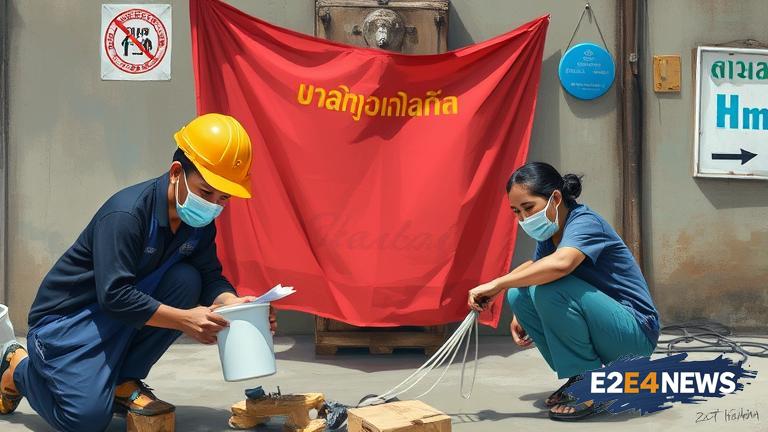Thailand is facing a severe labour crisis, with many industries struggling to find enough workers to meet demand. In an effort to alleviate this crisis, the government is considering recruiting an unconventional workforce: prisoners and soldiers. The plan, which is still in its infancy, would involve training and deploying prisoners and soldiers to work in various industries, including construction, manufacturing, and agriculture. This move is seen as a necessary step to address the labour shortages that have been plaguing the country for months. The labour crisis has been caused by a combination of factors, including a rapidly aging population, a decline in the number of young people entering the workforce, and a shortage of skilled workers. Many industries, including construction and manufacturing, have been severely impacted by the labour shortages, with some companies reporting shortages of up to 50%. The government has been under pressure to find a solution to the crisis, and the plan to recruit prisoners and soldiers is seen as a potential way to address the shortages. The plan would involve identifying prisoners who are nearing the end of their sentences and training them in specific skills, such as construction or manufacturing. These prisoners would then be deployed to work in these industries, where they would be paid a wage and given the opportunity to learn new skills. Similarly, soldiers would be trained and deployed to work in various industries, where they would be given the opportunity to gain work experience and develop new skills. The plan is not without its challenges, however, and there are concerns about the potential risks and benefits of recruiting prisoners and soldiers to work in these industries. Some have raised concerns about the potential for prisoners to reoffend, while others have questioned the ability of soldiers to adapt to civilian work. Despite these challenges, the government is pushing ahead with the plan, which is seen as a necessary step to address the labour crisis. The labour crisis has had a significant impact on the Thai economy, with many industries reporting reduced productivity and increased costs. The crisis has also had a social impact, with many workers struggling to make ends meet due to the lack of job opportunities. The plan to recruit prisoners and soldiers is seen as a way to address these social and economic impacts, and to provide opportunities for workers to gain new skills and experience. The government has also announced plans to increase the number of foreign workers allowed into the country, in an effort to address the labour shortages. This move is seen as a necessary step to ensure that industries have access to the workers they need to operate effectively. The labour crisis has highlighted the need for Thailand to develop a more sustainable and long-term approach to managing its workforce. This includes investing in education and training programs, as well as implementing policies to attract and retain skilled workers. The government has announced plans to increase funding for education and training programs, in an effort to develop a more skilled and productive workforce. The plan to recruit prisoners and soldiers is seen as a short-term solution to the labour crisis, but it is also part of a broader effort to develop a more sustainable and long-term approach to managing the workforce. The labour crisis has also highlighted the need for Thailand to develop a more effective system for managing its workforce, including improving the way that workers are recruited, trained, and deployed. The government has announced plans to develop a new system for managing the workforce, which would include the use of technology to match workers with job openings. This system would help to reduce the time and cost associated with recruiting workers, and would also help to ensure that workers are deployed to the industries that need them most. The labour crisis has had a significant impact on the Thai economy and society, and the plan to recruit prisoners and soldiers is seen as a necessary step to address the crisis. The government is working to implement the plan as quickly as possible, and is also working to develop a more sustainable and long-term approach to managing the workforce.
